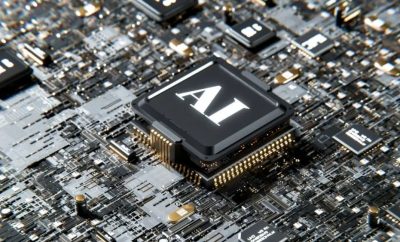
AI insiders push red emergency button
Looming AI catastrophes
The “godfather of AI” quit Google and joined a growing chorus of experts warning that the rush to deploy artificial intelligence could lead to disaster.
- Why it matters:When some of the smartest people building a technology warn it could turn on humans and shred our institutions, it’s worth listening, Axios global tech correspondent Ryan Heath writes in his debut.
Geoffrey Hinton, a top machine-learning pioneer, says he left Google so he can speak freely about the dangers of rushing generative AI products.
- “It is hard to see how you can prevent the bad actors from using it for bad things,” Hinton, 75, told The New York Times(subscription).
Axios asked AI experts — developers, researchers and regulators — to sketch their most plausible disaster fears. Their top 5:
- Cyberattacks explode. The right prompts can now generate working malicious code, meaning more, bigger and increasingly diverse cyberattacks.
- Dario Amodei,CEO at Anthropic, which offers a rival to ChatGPT, told Axios CEO Jim VandeHei during a recent Axios HQ event that a massive expansion of such attacks is his biggest near-term worry.
- Scams proliferate.Forget clumsy emails The new AI-assisted phishing and fraud schemes will take the form of real-sounding pleas for help in the faked voices of your friends and relatives, harvested from their social media.
- Disinformation detonates. Propaganda and partisan assault will be optimized by algorithms and given mass distribution by tech giants.
- Multimodal AI— text, speech, video — could make it impossible for the public to separate fact and fiction.
- Surveillance increases.America’s 70 million CCTV camerasand unregulated personal data already enable authorities to match people to footage.
- AI can superchargethis kind of tracking for both corporations and governments, enabling behavior prediction on a mass scale but with personalized precision.
- Strongmen crack down. Mass digital data collection can give would-be autocrats a means to anticipate and defuse social anger that bypasses democratic debate.
Reality check: The tech industry’s AI product race is accelerating.
- Google CEO Sundar Pichaihas warned of a “mismatch” between how fast AI is developing and how quickly our institutions can adapt. But he has also responded to competition from Microsoft and OpenAI by flooring the gas pedal on the company’s AI product launches.
-AI ‘godfather’ Geoffrey Hinton warns of dangers as he quits Google
A man widely seen as the godfather of artificial intelligence (AI) has quit his job, warning about the growing dangers from developments in the field.
Geoffrey Hinton, 75, announced his resignation from Google in a statement to the New York Times, saying he now regretted his work.
He told the BBC some of the dangers of AI chatbots were “quite scary”.
“Right now, they’re not more intelligent than us, as far as I can tell. But I think they soon may be.”
Συνέχεια εδώ
– IBM halts hiring for roles AI could kill
IBM CEO Arvind Krishna told Bloomberg that the company will pause hiring for roles that could be replaced with artificial intelligence — a potential loss of 7,800 jobs over the next five years.
- Why it matters:“Krishna’s plan marks one of the largest workforce strategies announced in response to the rapidly advancing technology,” Bloomberg writes.
Krishna said hiring for back-office roles, including human resources, will be suspended or slowed. IBM has 26,000 of these non-customer-facing roles.
- “I could easily see 30%of that getting replaced by AI and automation over a five-year period,” Krishna told Bloomberg.
IBM CEO among the first major executives to say they’ll replace jobs with AI
IBM’s CEO is setting his sights on using artificial intelligence to eliminate thousands of jobs in one of the first acknowledgments by a major company that it plans to reduce its workforce with AI.
Why it matters: AI has the potential to fundamentally reshape the workforce, much like the industrial revolution and the digital age caused enormous opportunity, upheaval and uncertainty throughout the economy.
Συνέχεια εδώ
-The industry AI might kill off first
ChatGPT has claimed its first casualty on the stock market.
Yesterday the price of shares from California-based learning company Chegg tanked by nearly half, after its CEO Dan Rosensweig said on an earnings call that he believes ChatGPT is “having an impact on our new customer growth rate.” Market-watchers on Twitter noted it’s likely the first ever publicly-traded company to acknowledge that it’s getting battered by the new technology.
Συνέχεια εδώ
Πηγές: axios.com, bbc.com, politico.com




